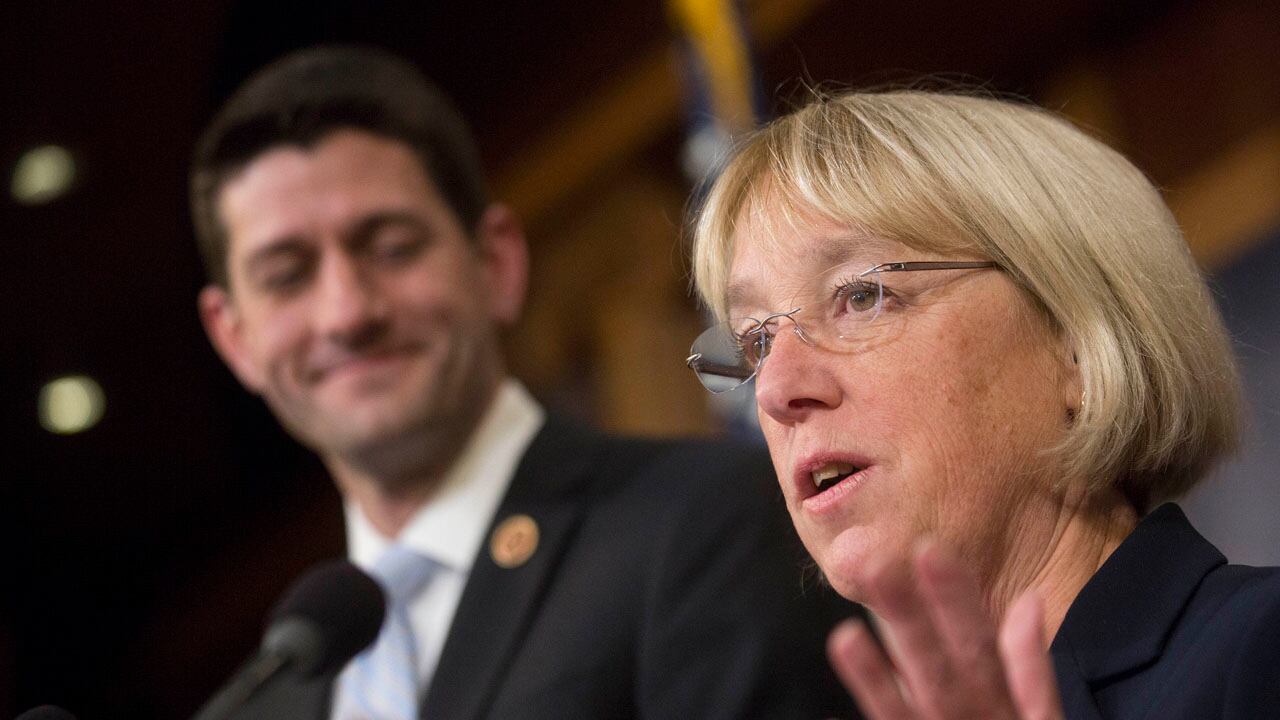Has the fever finally broken?
With the party line vote of 227-195 (one maverick Republican, Walter Jones of North Carolina joined with the Democrats in opposition) to move forward in the House of Representatives on the Murray-Ryan debt deal, the conservative groups that pushed the government shutdown and have driven the House GOP to the right have suffered a major setback. As opposed to the deal ending the government shutdown, which came under duress, this came without a ticking clock and in the context of Speaker John Boehner repeatedly attacking outside conservative groups in the past two days.
So does this mean that the Tea Party and outside conservative groups like Heritage Action and the Club for Growth have lost their sway on Capitol Hill? Not really.
Although Boehner railed again the groups opposing the Murray-Ryan deal before reading it, saying, "Frankly, I just think they've lost all credibility," the Speaker also went out of his way to assert his conservative bona fides. “I’m as conservative as anybody around this place. And all the things that we’ve done in the three years that I’ve been Speaker have not violated any conservative principle. Not once,” Boehner said in a press conference today.
The deal, in the opinion of Boehner and many other Republicans, takes steps in the right direction. It cuts $23 billion from the budget over the next 10 years while setting the budget for the next two years at just over $1.01 trillion, exactly halfway between Democratic and Republican proposals. It also buys time for more negotiations by preventing a government shutdown from happening for the next two years.
Republicans leaders joined Boehner in defending the budget. Rep. Pete Sessions (R-TX.), the chairman of the House Rules Committee, called it a small step towards getting Congress functioning again. "I think it's just real important that we look at what Paul [Ryan] did," said Sessions. "Nothing more than trying to resolve the differences between the budgets so that the two bodies can move forward and let the appropriators do the right thing."
However, just because they were defending the budget doesn't mean they liked it. Rep. Darrell Issa (R-CA) dismissed the savings, "$23 billion over 10 years is basically one Hurricane Sandy away from going to zero, so basically its a rounding error of zero." Yet, Issa still defended it as "the best deal Paul Ryan, a conservative all of us trust could get without government shutdown." He noted mournfully that Republicans didn't control the Senate or the White House and, under those constraints, this was about the best House Republicans could achieve.
At least one senior Democrat also shared the cautious optimism about the deal. Rep. Chris Van Hollen (D-MD) described the deal as "a step forward, a small one but a positive one." However, he made clear that he wasn't going out of his way to help Boehner pass the bill, noting "we're not whipping this." Rep. Keith Ellison (D-MN) echoed Van Hollen's attitude, saying "I don't think it is our responsibility to pass it. This is Paul Ryan's bill."
Not all Republicans consider it their responsibility to pass the bill. Rep. Tim Huelskamp (R-KS) dismissed the deal as "a spending increase." Tthe bill is expected to pass with a majority of Democrats supporting it but the question remains how well it will do with House Republicans.
One Republican aide suggested that half of the caucus would support it, a significant increase over the deal to end the government shutdown where only a third of House GOPers backed the final bill. If this holds true, and Boehner is able to satisfy the Hastert Rule on a bill that major outside groups like the Club for Growth and Freedom Works are scoring, it will be a sign of his increased leverage in his caucus. It will also means that as powerful as these groups still are in the Republican Party, the GOP has decided that another government shutdown would do far more long-term political harm than angering Tea Partiers. The final vote in the House is expected Thursday evening.






